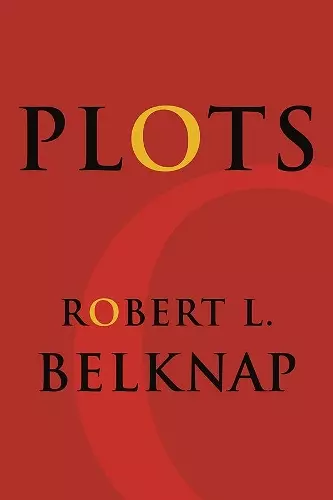Plots
Robert L Belknap author Robin Feuer Miller editor
Format:Hardback
Publisher:Columbia University Press
Published:14th Jun '16
Currently unavailable, and unfortunately no date known when it will be back

Literary narrative enchants us through its development of plot, but plot tells its own story about the making of narrative. Through readings of King Lear and Crime and Punishment, Belknap explores the spatial, chronological, and causal aspects of plot, arguing that plots teach us novelistic rather than poetic justice. Operating according to their own logic, they provide us with a compelling way to see and order our world.
Literary narrative enchants us through its development of plot, but plot tells its own story about the making of narrative. Through readings of King Lear and Crime and Punishment, Robert L. Belknap explores the spatial, chronological, and causal aspects of plot, arguing that plots teach us novelistic rather than poetic justice.Robert L. Belknap's theory of plot illustrates the active and passive roles literature plays in creating its own dynamic reading experience. Literary narrative enchants us through its development of plot, but plot tells its own story about the making of narrative, revealing through its structures, preoccupations, and strategies of representation critical details about how and when a work came into being. Through a rich reading of Shakespeare's King Lear and Dostoevsky's Crime and Punishment, Belknap explores the spatial, chronological, and causal aspects of plot, its brilliant manipulation of reader frustration and involvement, and its critical cohesion of characters. He considers Shakespeare's transformation of dramatic plot through parallelism, conflict, resolution, and recognition. He then follows with Dostoevsky's development of the rhetorical and moral devices of nineteenth-century Russian fiction, along with its epistolary and detective genres, to embed the reader in the murder Raskolnikov commits. Dostoevsky's reinvention of the psychological plot was profound, and Belknap effectively challenges the idea that the author abused causality to achieve his ideological conclusion. In a final chapter, Belknap argues that plots teach us novelistic rather than poetic justice. Operating according to their own logic, plots provide us with a compelling way to see and order our world.
Plots is an almost perfect book by one of this country's great scholar-teachers on why the literary art of arranging episodes matters to us. Not only luminously smart but also perfectly plotted (Robert L. Belknap's model plot-mongers are Shakespeare and Dostoevsky), each detail of the book's structure, chronological argument, and diction conspire to create that rare work of criticism: a story we cannot put down. -- Caryl Emerson, Princeton University Plots is a brilliant piece of work, well-written, and insightful-a sheer pleasure to follow. Belknap's definitions of the terms of Russian formalism are clearer than anyone else's, and his sense of what they suggest is richer. -- Gary Morson, Northwestern University Plots has an adamantine quality, as if decades of thought and teaching were being crystallized and enormously compressed... Plots reveals that with Belknap's death, we lost a critic and literary historian of great power and considerable ingenuity. -- Scott McLemee Inside Higher Ed You may never look at a story the same way again after reading Robert Belknap's incisively clear and illuminating book, titled simply, Plots. The Fictional 100 A valuable addition to the scholarship on plot and narration Choice
ISBN: 9780231177825
Dimensions: unknown
Weight: unknown
200 pages